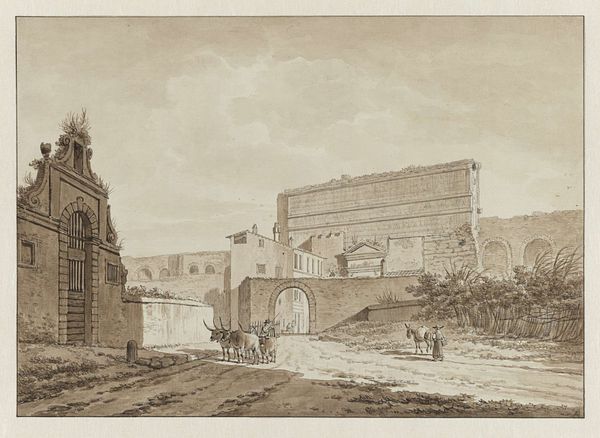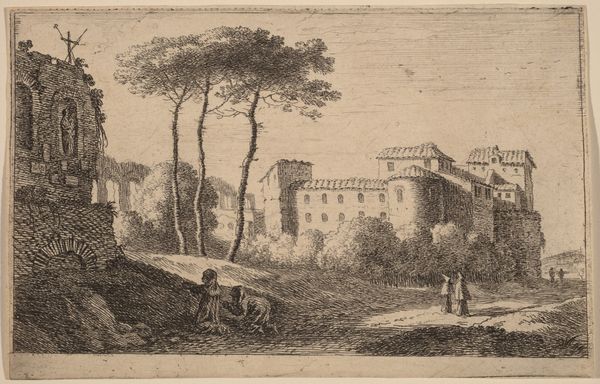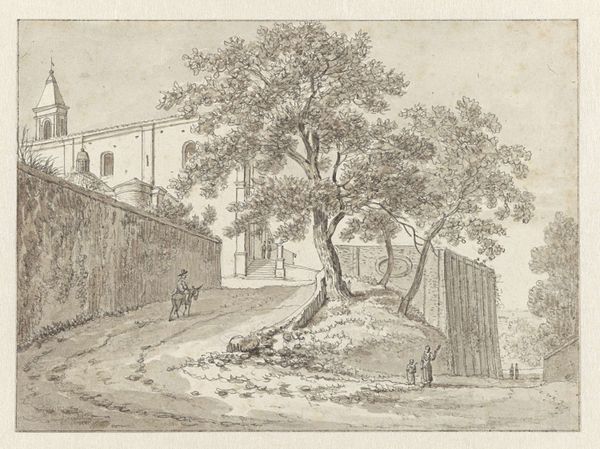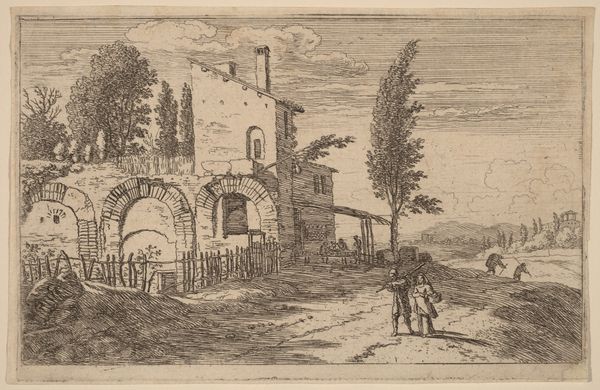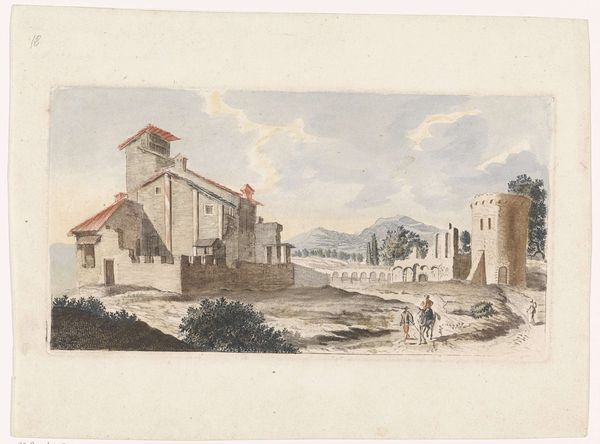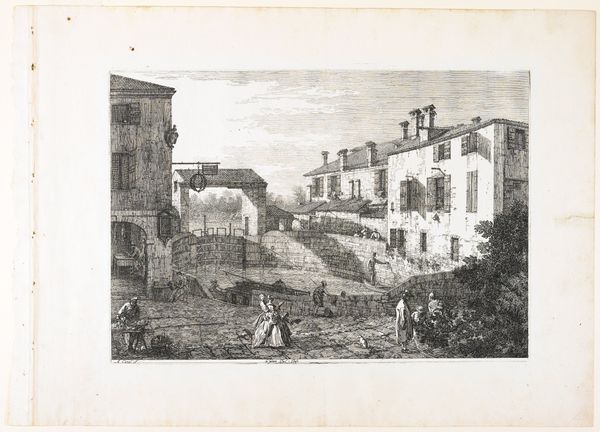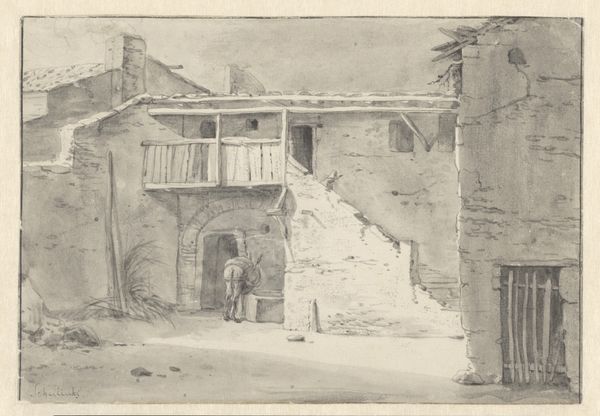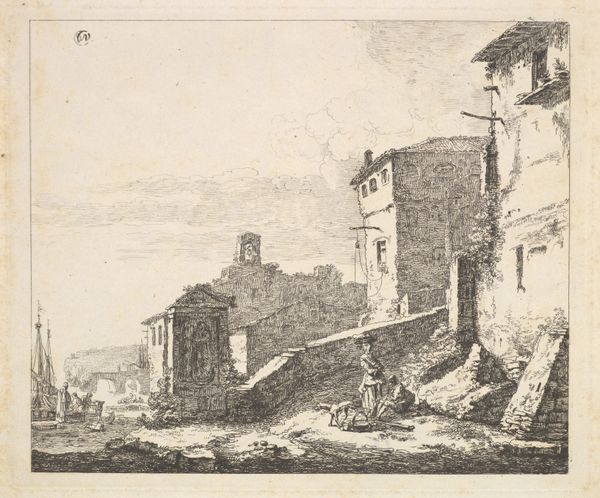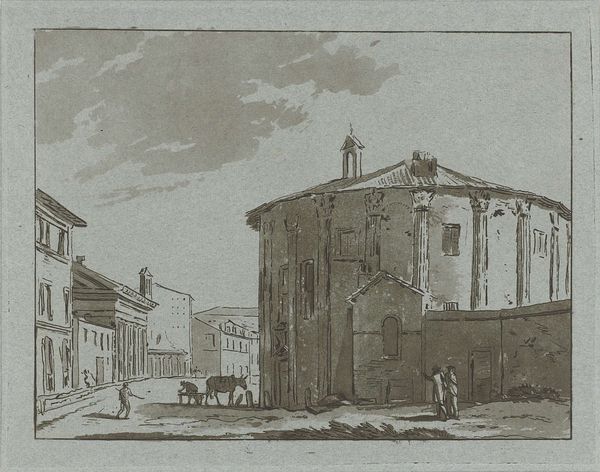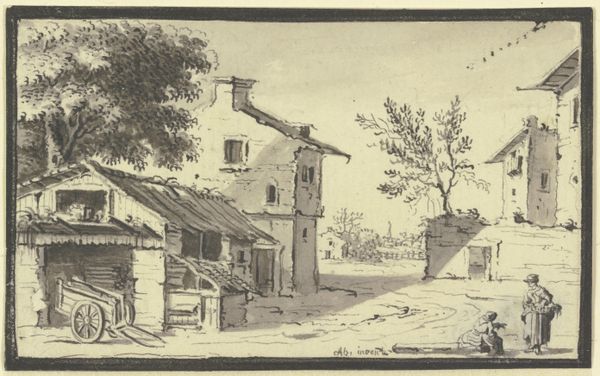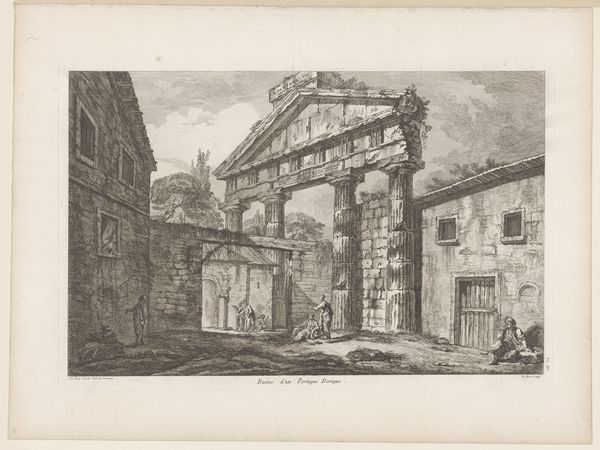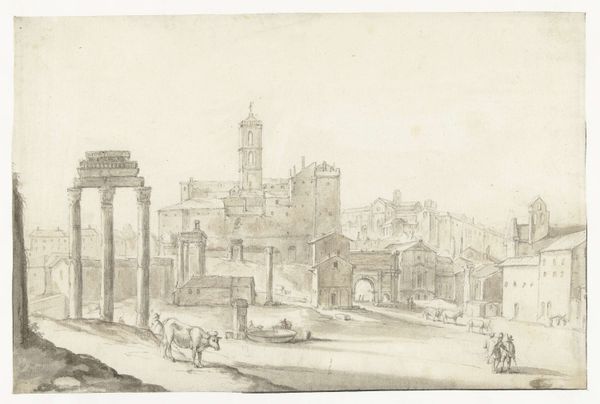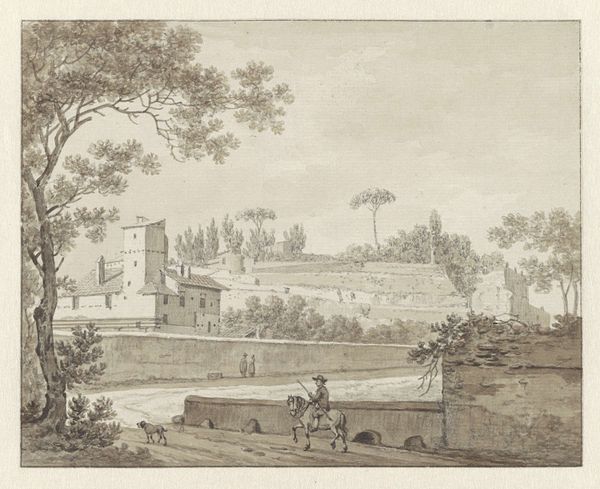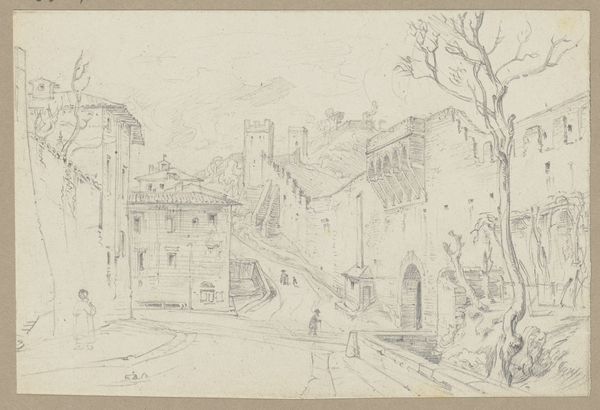
drawing, ink, architecture
#
drawing
#
neoclacissism
#
landscape
#
etching
#
ink
#
cityscape
#
architecture
Dimensions: height 213 mm, width 241 mm
Copyright: Rijks Museum: Open Domain
Editor: This drawing, "De kerk van de Trinità dei Monti in Rome" by Daniël Dupré, made sometime between 1761 and 1817, uses ink in a classically Neoclassical way. It feels so serene, almost staged. What do you see in this piece that perhaps I’m missing? Curator: The image holds a dialogue between the earthly and the spiritual, doesn't it? Note the figures dwarfed by the monumental architecture. What does the presence of the horse and figure suggest to you in relation to the imposing church above? Editor: Maybe it's about the everyday life happening alongside this grand religious presence? Like the church is this constant, while the people below are just passing through. Curator: Precisely. Consider the deliberate placement of the obelisk – a symbol reaching back to ancient Egyptian sun worship. Juxtapose that with the baroque architecture of the church. See how different eras and belief systems converge? Editor: I didn't even notice the obelisk at first. It's subtle but so important for that connection you're talking about. So Dupré is layering symbols from different periods? Curator: Indeed. And beyond the religious aspect, consider the very human impulse to record and monumentalize, visually marking our presence within a landscape. This impulse connects us through millennia, from obelisks to churches. The church itself might be a symbol of aspiration, seeking a higher truth beyond our transient existence. What do you think about how architectural representation reflects collective aspirations of immortality? Editor: Wow, I hadn't thought about it that way. So much more than just a pretty cityscape drawing. There's so much history packed into those lines. Curator: Exactly. It’s about seeing the echoes of our shared human story within these spaces. It’s like visual memory connecting different times.
Comments
No comments
Be the first to comment and join the conversation on the ultimate creative platform.
